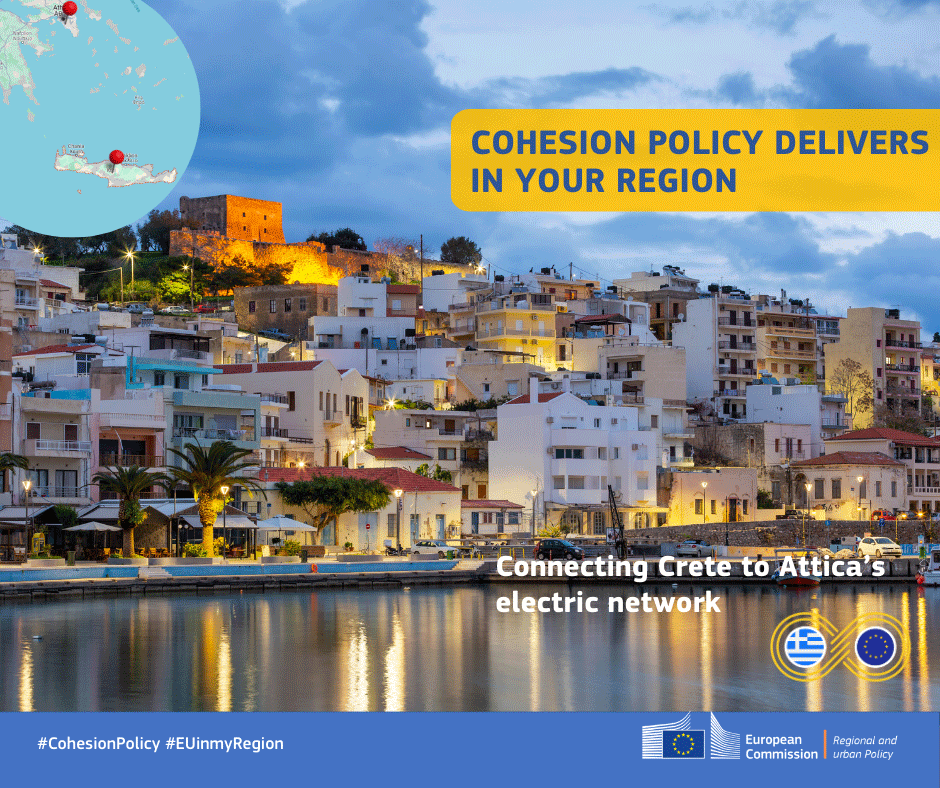More than €250 million from the European Regional Development Fund (ERDF) will finance the first stage of high-voltage electricity infrastructure between the island of Crete and the Attica region, located in mainland Greece. The project will improve energy security in Crete, maximise the island’s renewable energy potential, lower electricity prices for consumers, and overall improve the area’s economic development.
- 15 February 2024

Commissioner for Cohesion and Reforms Elisa Ferreira said: “Thanks to this Cohesion Policy support, the new connection will lower the tariffs that Greek electricity consumers are currently paying to cover high generation costs on islands that are not part of the main grid. In times of high energy prices, this investment and the creation of an electricity connection to mainland Greece will bring good news for the citizens of Crete. The connection also marks an important step in improving energy security and supply across the EU and will help Greece to make better use of its renewable energy potential.”
The construction of two converter stations - one at the Damasta substation in Crete and another in Koumoundouros, Attica - will ensure a smooth, uninterrupted power supply, and will also allow for the power station to be rebooted in case of blackouts.
The new electricity connection will reap many benefits: bringing Crete into the wholesale electricity market will help lower electricity prices thanks to increased competition. It is also expected to contribute to economic growth, including tourism, which accounts for nearly half of Crete’s GDP. It will also maximise Crete’s renewable energy potential, limiting the use of fossil fuels and emission of greenhouse gases.
For 2025 alone, in its first year of operation, the electricity connection is expected to reduce CO2 emissions by more than 400,000 tonnes.
More information
More information on EU-funded projects in Greece available here.
